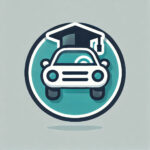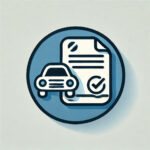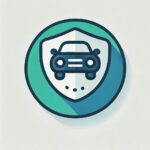
Drowsy driving is a growing concern on roads across the United States, and Texas is no exception. In fact, Texas consistently ranks among the top states for drowsy driving accidents. Fatigue can severely impair a driver’s reaction time, decision-making abilities, and overall awareness, leading to a higher risk of accidents. In a state like Texas, where long road trips, long commutes, and expansive highways are common, staying alert behind the wheel is essential.
This guide explores the dangers of drowsy driving, provides statistics on its impact in Texas, and offers practical tips for staying safe on the road. Whether you’re driving across Texas or simply navigating through your daily commute, understanding the risks and how to combat drowsy driving can save lives.
Drowsy driving refers to operating a vehicle while fatigued or sleepy, leading to reduced alertness, slower reaction times, and impaired judgment. Fatigue has similar effects on the body as alcohol consumption, and studies have shown that being awake for 18 hours or more can impair driving performance to the same extent as having a blood alcohol content (BAC) of 0.05%, and being awake for 24 hours is comparable to having a BAC of 0.10%.
Drowsy driving can occur for several reasons, including:
Drowsy driving is a serious problem in Texas, contributing to a large number of accidents and fatalities each year. According to the Texas Department of Transportation (TxDOT), drowsy driving is a major factor in crashes, and it is responsible for hundreds of fatalities annually. With its long highways, large rural areas, and high-speed roads, Texas is especially prone to the risks associated with drowsy driving.
Here are some key statistics related to drowsy driving in Texas:
According to the National Sleep Foundation, 1 in 25 adult drivers report having fallen asleep at the wheel in the past month. These statistics emphasize the importance of staying alert and recognizing the signs of fatigue before getting behind the wheel.
Although drowsy driving is a serious issue, there are several steps you can take to prevent it and stay safe on the road. Below are practical tips to help you stay alert during long drives, prevent fatigue, and reduce the risk of accidents caused by drowsy driving.
The most effective way to prevent drowsy driving is to ensure you get enough sleep. Aim for 7-9 hours of rest per night. If you know you’ll be driving long distances or late at night, make sure you are well-rested before starting your trip.
If you’re driving for an extended period, take breaks every 2 hours or 100 miles to rest, stretch, and rehydrate. During these breaks, step out of the vehicle, walk around, and get your blood circulating. This will help reduce the feeling of fatigue and improve your alertness.
If possible, avoid driving during the hours when you’re most likely to be fatigued. Late at night and early morning are the times when drivers are most likely to experience drowsiness. If you need to drive at night, consider splitting the trip with a passenger or taking turns driving.
While caffeine can provide a temporary boost of energy, it’s not a permanent solution to fatigue. Over-relying on caffeine can lead to a crash later on, which might make you feel even more tired. If you’re feeling sleepy, it’s better to pull over and take a nap instead of relying on caffeinated drinks to keep you awake.
If you’re traveling with a passenger, take turns driving to avoid fatigue. This is especially important during long road trips or when traveling at night. Even short power naps during stops can help refresh you and improve your alertness.
Recognizing the signs of drowsy driving is crucial to staying safe on the road. Here are common signs that you should pull over and rest:
If you experience any of these symptoms, it’s essential to pull over and rest. Taking a short nap of 15-20 minutes can improve your alertness significantly.
Defensive driving courses focus on techniques to help you anticipate and avoid potential accidents. While these courses typically cover topics like distracted driving, speeding, and weather conditions, many defensive driving courses also teach how to stay alert and recognize the signs of drowsy driving.
Taking a defensive driving course in Texas can help:

Last Updated: July 16, 2025

Last Updated: July 16, 2025

Last Updated: July 16, 2025

Last Updated: July 14, 2025

Last Updated: January 30, 2026

Last Updated: July 14, 2025

Last Updated: January 30, 2026

Last Updated: July 14, 2025